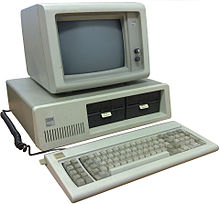
There is no denying the fact that the internet and internet marketing have changed the way people shop for and buy cars. The way we use the internet and what we need from it has continuously evolved, and companies like Google have continually updated their search results and algorithms to match better the way we search.
Starting about six or seven years ago, when Google began using machine learning and artificial intelligence to alter their search results, Google was able to quickly adapt to how we search for things and even how we set up our websites. The keywords and tricks you had to use to find what you needed in the past have been replaced as the internet has evolved. Just look at voice search. Google will display or even speak results back to you without even having to look at a website.
So how does this impact your dealership? Well, has your website evolved in a similar fashion? Have you adapted to modern search intent, or are you still relying on old gimmicks to get people to your lot? And are they backfiring for you in a new decade?
One tactic that could arguably be a remnant of a bygone internet era is the “internet special pricing.” It may be a simple phrase, but it implies that purchasing a vehicle through the internet affords the dealership enough leeway on the price that they can further reduce the price. But how many transactions are ever completed 100% on the web at your dealership? Probably very few, if any.
Does your web pricing match the pricing of the vehicles on the lot? If one were to visit your lot, would the price be higher on the vehicle than on the internet? Probably not.
When a person goes to buy a used car, they are entering the sales process as a skeptic with their guard up. They don’t want to buy a lemon, and they certainly don’t want to overpay for it. By having two prices for the same vehicle advertised already builds doubt about what the real price is.
This example is where Carmax was able to gain so much ground so quickly. Their sales process eliminated all the doubt, all the haggling, and to the best of their ability, all the fear of purchasing a used car. They even offer free returns. That’s why, on any given Saturday, there is a wait to talk to a salesperson at Carmax while the dealer down the street is just passing the time before the next prospect shows up.
“Special Internet pricing” or “Get your E Price” or “One shot Internet pricing” all served the same purpose in the past. It was first designed to draw people in, get their information, and build a database of possible clients. What are you trying to accomplish with Internet Special Pricing? Are you trying to generate more leads, or do you believe having “special internet pricing” will help close the sales leads you do have?
Even if you do have “special internet pricing,” your customers are still going to use that number as the starting point of negotiation. It doesn’t matter what brand you sell; people are going to want to negotiate unless your dealership’s policy is a “one price, no-hassle” operation.
So in 2020, is the “internet special price” doing anything for your business, or is it time to evolve? Where else can you make changes to be more open and transparent about the vehicles that you sell? Where will evolution take your dealership in 2020 and beyond?
